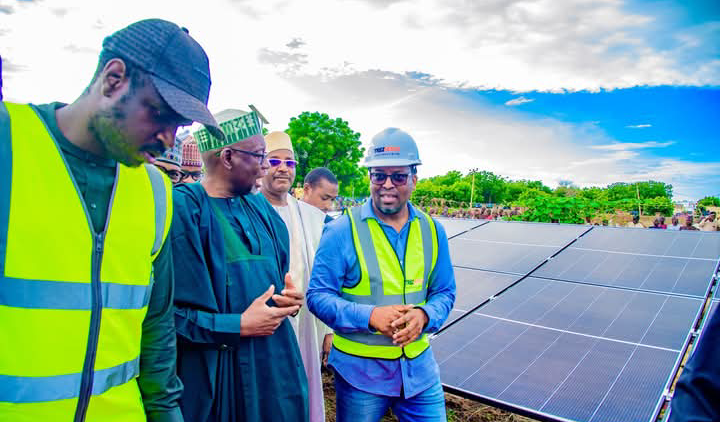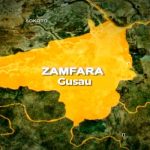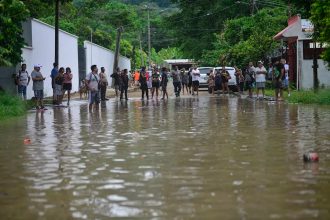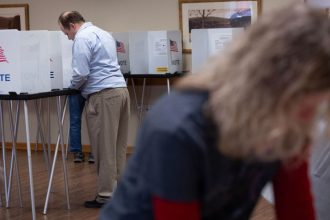Governor Umar Namadi of Jigawa State has inaugurated a 500KWp solar-hybrid mini-grid worth N1.2bn in Kafin Hausa Local Government Area, marking a major step toward improving power supply and economic activities in the state.
In his address while unveiling the project at a ceremony held on Saturday at the project site in Kafin Hausa town, Namadi praised the partnership between the state government, Future Energies Africa, and Kano Electricity Distribution Company, calling it “a visionary investment that will empower our people and support rapid, sustainable development.”
He highlighted how reliable electricity is critical for the state’s progress, pointing out that “the mini-grid project stands as a beacon of hope for Jigawa’s energy future, blending innovation with locally-tailored development.”
The governor reaffirmed the state government’s commitment to leveraging renewable energy technologies to sustainably meet growing electricity demands.
“As these projects expand, Jigawa is poised to power progress, stimulate commerce, and transform lives across the state,” Namadi noted.
On his part, Ahmad Zakari, representing FEA, highlighted the innovative mix of conventional and renewable energy sources, saying that “our hybrid solar project sets a new standard in electrification, enabling clean, consistent power to Jigawa’s urban centres.”
Zakari emphasised private sector commitment to Nigeria’s power solutions, pointing to Jigawa’s mini-grid model as pathbreaking for energy inclusion.
Speaking on the project description during the event, the Managing Director, Kano Electricity Distribution Company, Dr. Abubakar Jimeta, explained the project’s technical details, stating that “the mini-grid’s infrastructure guarantees stable power for households and businesses, alleviating pressure on the national grid and enhancing energy access.”
“The Kafin Hausa Mini-Grid is an investment of N1.2 billion and includes a 500KWp solar-hybrid power plant, a 3.5km 33kV distribution line, step-up and step-down transformers, and will supply power to 10 major distribution transformers across Kafin Hausa town and environs, including NEPA Office, Kofar Fada, Akarami, Bakin Kasuwa, Ashura, Kwazalewa, Kafasa, Balangu, Maru and Yakasai, amongst others,” the MD said.
Jimeta added that such projects relieve strain on the national grid while providing resilient power in underserved areas in the state.
In his remark, the Jigawa State Commissioner for Power and Renewable Energy, Surajo Musa, stressed the project’s socio-economic impact.
“In an agrarian state like Jigawa, where farming and agro-business dominate, access to stable electricity will boost productivity, create jobs, and enhance quality of life,” he said.
He highlighted government policies fostering private investments in renewable energy to accelerate state electrification.
Musa emphasised that the mini grid will energise vital locations such as Ashura, Kwazalewa, Kafasa, Balangu, Maru, and Yakasai, supporting essential services and local businesses in the state.
“Given Jigawa’s agricultural foundation, the reliable power supply will benefit agro-processing, irrigation, cold storage, and other energy-dependent activities, improving food security and income generation,” he stressed further









